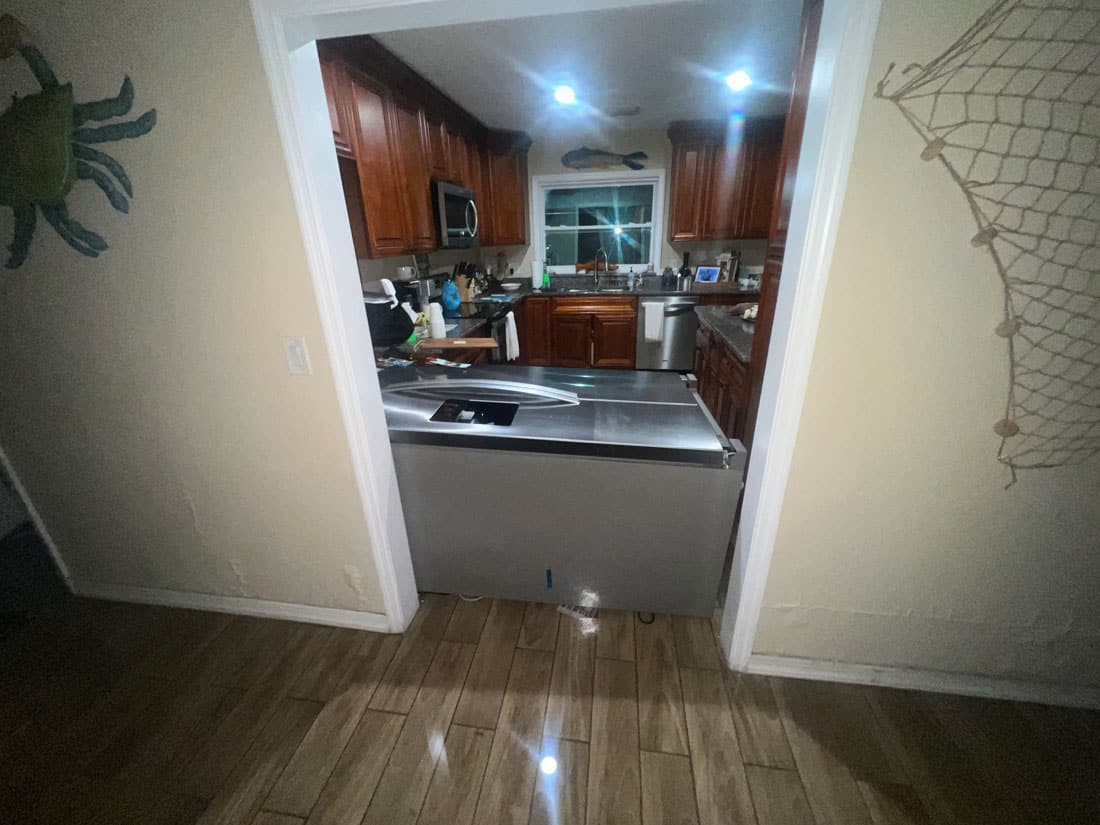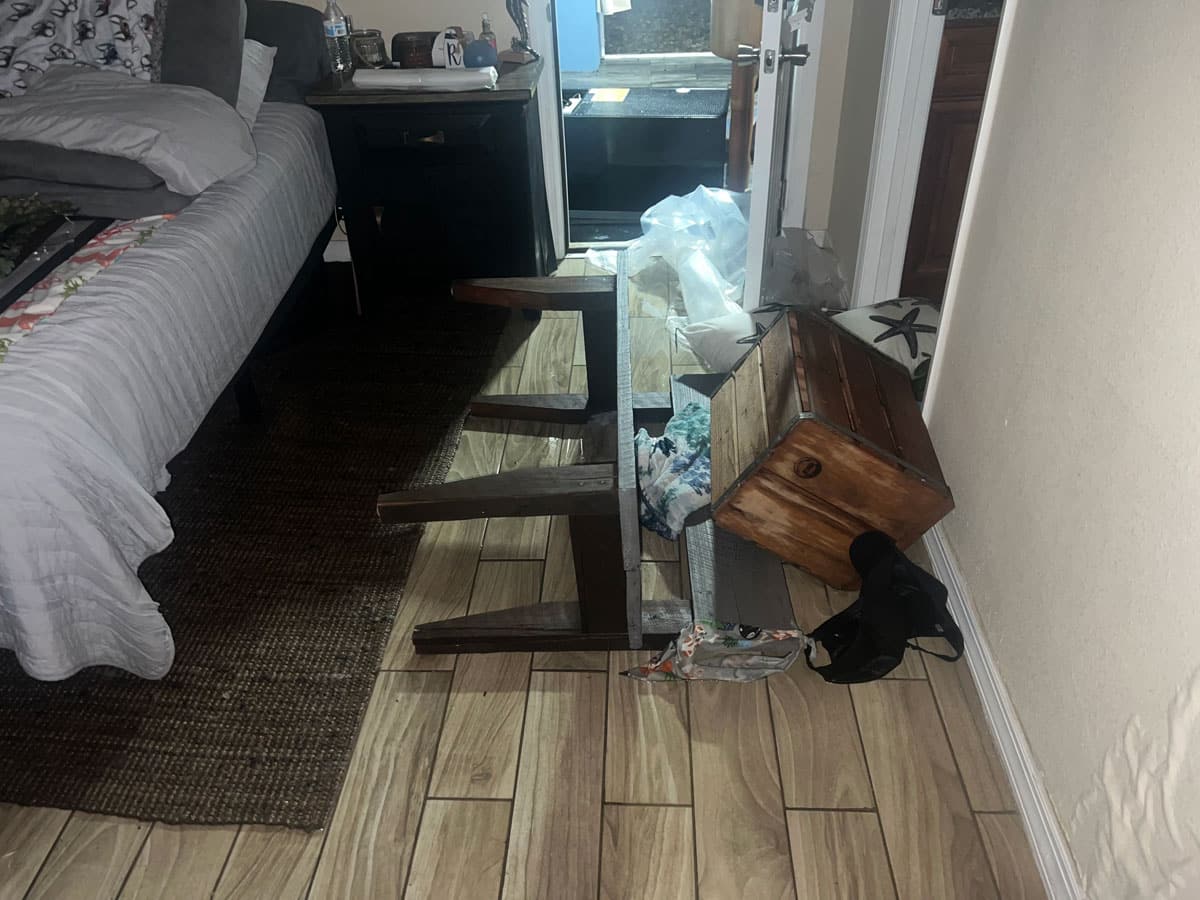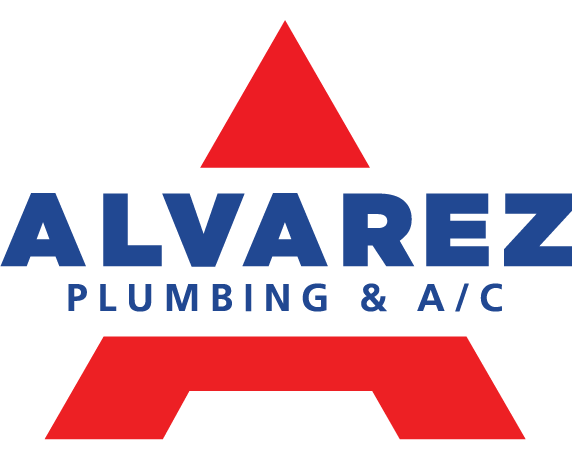Post Hurricane Helene and Milton

I want to share a note from our CEO about the aftermath of Hurricanes Helene and Milton:
Dear Neighbors,
As we all continue to navigate the aftermath of Hurricanes Helene and Milton, I want to extend our heartfelt support and assistance to our community. My heart breaks to see our Tampa community go through the devastation that occurred. Alvarez Plumbing & AC has been a proud member of the Tampa Bay community for over 48 years, and we’re committed to helping our neighbors rebuild and recover. I can relate to the trouble this storm may have caused you. The pictures below show my home on Friday morning, under 3.5 feet of water and a total loss.
Just to let you know, we are OPEN and fully operational with over 70 trucks on the road to service our customers. Our technicians are prepared for any job, big or small, in both air conditioning and plumbing, 24 hours a day, seven days a week.
We will get through this together! We had a meeting with our technicians this morning, and I was overwhelmed by their enthusiasm to help those in need. Many of them, like myself, suffered damage from the storm and they want to be there for our customers the way the Alvarez family of employees were there for each other over the last few days. This makes me proud of our culture and the brand we have created here.
With over 1,400 Google reviews and countless loyal customers, we are truly blessed. If you need us for anything, we have set up a hurricane hotline at 813-328-2130. This will connect you with our front staff, who are ready to help. I hope you all continue to stay safe, and we look forward to helping if the need arises.
Respectfully,
Marcus Reyes
Alvarezplumbing.com


Hurricane A/C Inspection: $49
40/50 Gallon Water Heater: $1295
- 40/50 gallon water heater electric standard
- (code upgrade extra)
- Easy Installation
Ready to Schedule an Appointment?
Flood Damage and your Air Conditioning System
Experiencing a flood in your home can be overwhelming, especially when dealing with the aftermath of severe storms or hurricanes. It’s not just the damage to your property but the emotional toll that can weigh heavily on you. If your air conditioning (AC) unit has been affected by flooding, it’s essential to know the steps to take to protect your home and ensure your safety. Below, we provide guidance from the team at Alvarez Plumbing & Air Conditioning to help you navigate this situation with care.
Safety First: Returning to Your Home After a Flood
The priority after any major storm or flood is your safety. Make sure it’s safe to return to your home. Floodwaters can carry hidden dangers, from electrical hazards to structural damage. If the area has been severely affected by storm surge or flooding, consider contacting a professional to assess the safety of your home before entering. It’s also wise to have an electrician inspect your home’s electrical system, including circuits connected to the air handler and condenser unit, before turning any appliances on.
What Happens When My AC Unit is Flooded?
Floodwaters, especially saltwater from storm surges, can cause serious damage to your AC system. For homes with crawl spaces, the ductwork is particularly vulnerable. After a flood, ductwork may need to be replaced to prevent mold and mildew growth. If floodwaters reached the outdoor condenser, especially if they were saltwater, you may need to replace the unit entirely.
Flood damage can be costly, but insurance may cover some or all of these expenses. If you don’t have flood insurance, it’s important to be prepared for the financial impact of repairs or replacements. Even if your AC unit appears to function after the flood, it should not be used until it has been professionally inspected. Using a damaged system could pose significant fire hazards, and it’s often safer and more cost-effective to replace components rather than repair them.
First Steps After Your AC Unit Floods
Once it’s safe to address your AC system, follow these key steps:
- Turn Off the Electricity
Before inspecting or attempting any repairs, turn off the electricity to the AC unit at the breaker box. Water and electricity are a dangerous combination, and powering off the system can prevent further damage and reduce the risk of injury. - Allow the Unit to Dry
After turning off the electricity, allow the AC unit to dry out. This includes both the indoor and outdoor units. While the outdoor unit is designed to handle normal weather conditions, it isn’t equipped to deal with being submerged in floodwaters.
Inspecting Your Outdoor Unit
Once the unit has dried, check your outdoor unit for signs of flood damage:
- Electrical Components: Look for signs of corrosion, which could indicate long-term damage.
- Condenser Fan Motor: If the fan motor’s seal has broken, water may have entered the motor, leading to damage.
- Unit Coils: These may need cleaning to restore optimal function.
If you notice any issues, don’t hesitate to contact a professional for repairs. Alvarez Plumbing & Air Conditioning is always available to help restore your unit to working order.
Inspecting Your Indoor Unit
The indoor AC unit, while generally water-resistant, is still susceptible to damage from even small amounts of water. Before inspecting it, ensure the thermostat is off to prevent any electricity from flowing to the unit.
Water damage can affect several parts of the indoor unit, so it’s important to conduct a thorough inspection. However, even if your AC appears functional, refrain from using it until a professional has completed a comprehensive assessment. Flood-related damage can sometimes take days or weeks to become apparent, and using a compromised system could lead to further damage or safety risks.
Preventing Future Flood Damage
While we can’t control the weather, there are steps you can take to minimize flood damage to your AC system in the future:
- Remove Electrical Components: If you know a hurricane or severe storm is approaching, consider removing electrical components from your unit to prevent damage.
- Turn Off the Power: This can limit damage to the system and reduce risks.
- Use Sandbags: Placing sandbags around the outdoor unit can help keep floodwaters at bay.
- Build a Retaining Wall: For a more permanent solution, consider constructing a retaining wall to protect the unit from future floods.
After heavy rain or flooding, inspect your outdoor unit for any standing water. If you find water, clear it out immediately. However, avoid covering the unit with a tarp, as this can trap moisture and prevent proper drying.
Protecting Your Home and AC System with Insurance
One of the most reliable ways to protect yourself from the financial burden of flood damage is to invest in comprehensive homeowners insurance that includes flood coverage. While it won’t stop a flood, it can provide much-needed support during the recovery process.
When You Need Professional Help
If your AC unit has been affected by floodwaters, the team at Alvarez Plumbing & Air Conditioning is here to assist. Whether you need repairs, maintenance, or a full replacement, we provide expert service to get your home’s cooling system back on track. Floods are stressful, but you don’t have to navigate the repairs alone—let our professionals help restore comfort to your home.
For Tampa Bay residents affected by recent storms, give us a call, and we’ll be there to guide you through the process.
Call our hurricane hotline at 813-328-2130
Plumbing Services and Things to Check After a Hurricane
After a hurricane, it’s essential to inspect your plumbing system for damage to prevent further problems and ensure your home’s safety. Here are some key areas to check:
- Water Leaks:
- Visible leaks: Look for obvious leaks around faucets, pipes, and fixtures.
- Hidden leaks: Check for signs of water damage, such as damp spots on ceilings or walls, or a musty odor.
- Foundation leaks: Inspect the foundation for cracks or leaks that could be allowing water into the basement or crawlspace.
- Sewer Lines:
- Backups: Check for sewer backups in drains, toilets, or sinks.
- Root intrusion: Tree roots can grow into sewer lines and cause blockages.
- Damage from debris: Hurricane debris can clog or damage sewer lines.
- Water Heater:
- Damage: Inspect the water heater for leaks, rust, or other signs of damage.
- Sediment buildup: Drain the water heater to remove sediment and improve efficiency.
- Pipes and Fixtures:
- Corrosion: Look for signs of corrosion on pipes and fixtures.
- Clogs: Inspect drains and fixtures for signs of clogs.
- Professional Inspection:
- Certified Plumber: Consider hiring a certified plumber to conduct a thorough inspection of your plumbing system.
By addressing these areas, you can help prevent further damage and ensure the safety and functionality of your plumbing system.
Remember: If you suspect any damage to your plumbing system, it’s important to contact a professional plumber for assistance.
Comments are closed.


